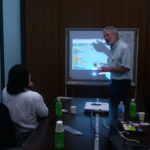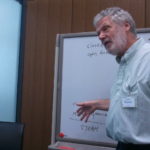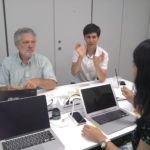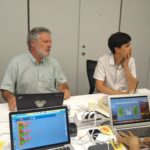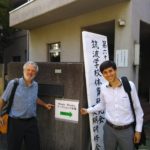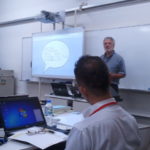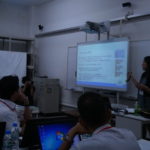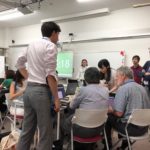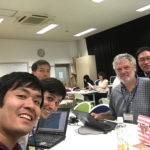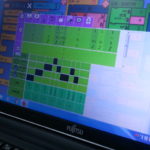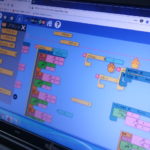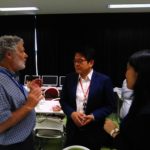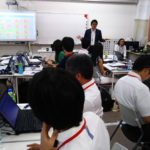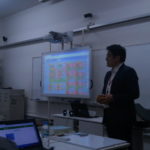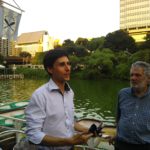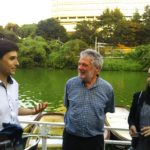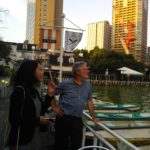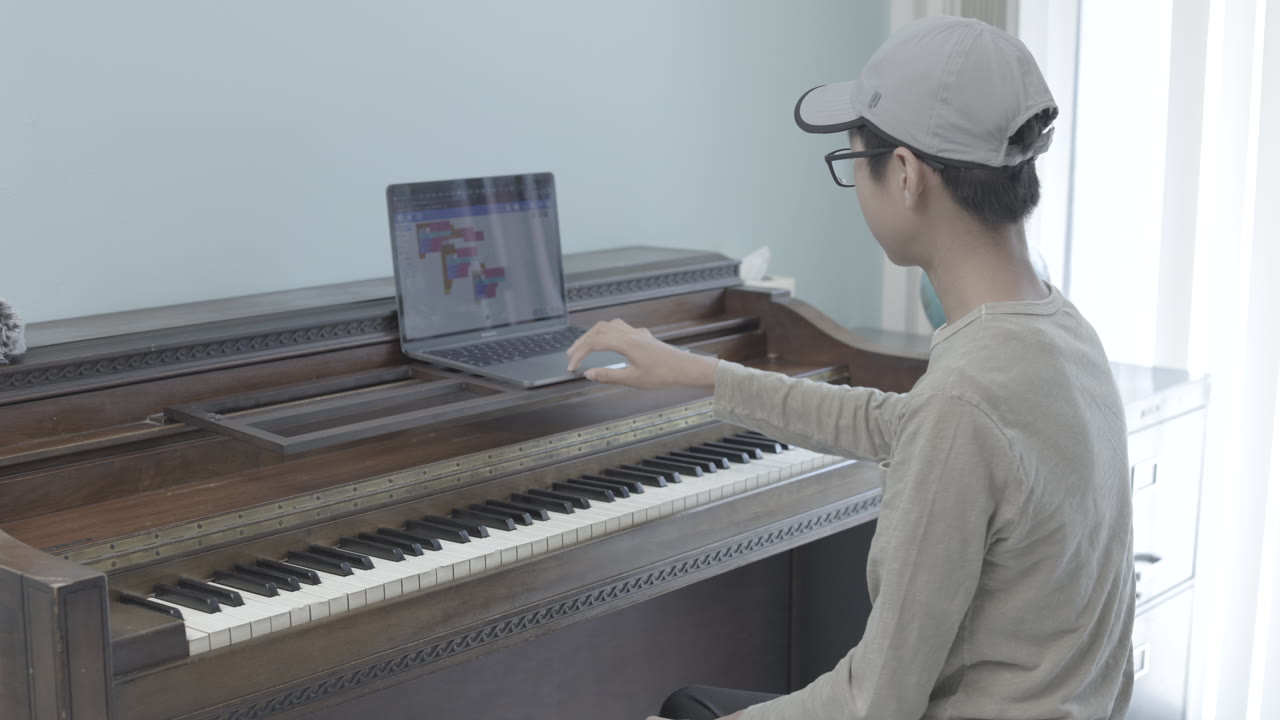Tokyo Summer Workshop in Partnership with Gakken and steAm
Walter Bender and Devin Ulibarri travelled together at the end of July to meet with members of Gakken, a well-known publishing company in Japan, and to conduct a workshop with 20 Japanese public school teachers to ask the question “What would a national Music Blocks curriculum look like in Japan?”.
Background: How did this trip come to be?
At the end of 2017 and the beginning of 2018, Music Blocks co-creator Devin Ulibarri, made a series of trips around Japan to discuss Music Blocks. During this time, he met Sachiko Nakajima, an accomplished jazz pianist, mathematician, and educator (read more here). Sachiko and Devin met with officials at Japan’s Ministry of Economics, Trade, and Industry (METI) to show them Music Blocks. Japan has a goal that by 2020 they will have computer programming as part of their national curriculum for elementary school students, so our tool is of interest. A long story short, METI worked together with a consulting group to broaden their scope (i.e. to see if there are other comparable projects for teaching/learning), opening up applications nationwide. During this time partnerships were made between Sachiko’s private business, steAm (STEM with a capital “A” for “Arts”), and Gakken, a large and reputable publishing company in Japan. Together, Gakken and steAm applied for funding to create curriculum and conduct workshops and eventually won.
Day One: Walter Bender and Devin Ulibarri meet with the Gakken team for the first time.
The first day after their flight to Tokyo, Walter and Devin arrived early at Gakken Headquarters eager to meet the team and discuss the following day’s workshop. They were scheduled to meet the team at 4pm in afternoon, but arrived shortly after 9am to find a room and get to work. One by one, they met with members of the Gakken team discussing the challenges and opportunities involved with a national deployment and showed them some archetypical examples of music, math, and coding with Music Blocks (e.g. note value as fractions, musical form, retrograde and inversion with “Crab Canon” by J.S. Bach, etc). Important adjustments to the Japanese translations were also made based on team member feedback. Although the early arrival was unexpected (apologies!) the time was well spent getting to know everyone on the team and taking time to dialogue and discuss various aspects of the project.
During the scheduled afternoon meeting with the entire team, Walter pointed out that more time should be given during the workshop to let the teachers try the software themselves. He told everyone, “You learn through doing, so if you want more learning, you need more doing” (Translated into Japanese by Devin as 人は「する」ことで学びます。ですから、「学ぶ」ことが目的だったら「する」ことは必要なんです。) Walter and Devin opted to cut their scheduled 15 minute self-introduction for the following day to 2 minutes each to give more time to the teachers to explore Music Blocks.
Day Two: The Day of the Big Workshop
Devin and Walter were kindly escorted to the location of the workshop at a school in Tokyo. Final preparations were underway as they arrived. When the workshop began, Walter, Devin, and Sachiko greeted and thanked all the school teachers for their time, Sachiko demonstrated some of the basics using the familiar Japanese melody to “Tulip”, and then the teachers were asked to try Music Blocks on their own while facilitated by the Gakken team, Sachiko, Walter, and Devin.
Officials from the Ministry of Economics, Trade, and Industry arrived at the workshop in the early afternoon and discussed the broader implications and goals of such an event.
During the final hours of the workshop, the teachers were tasked to brainstorm curriculum ideas. Teachers dialogued in groups, tried certain project ideas using Music Blocks, and wrote down some of their thoughts. All of the conversations were recorded and all of the written feedback was collected by the Gakken team to help inform the goals for the following months.

After the workshop, the entire team had dinner together, enjoying each others’ company and discussing some of the next steps.
Afterword: Many thanks to all of the efforts made by all of the organizers, team members, public school teachers, and countless others who helped to organize this workshop! Since the workshop, Devin and Walter have established lines of communication with the rest of the Gakken team and will have regularly scheduled meetings. The next workshops are scheduled for the end of this year and January of 2019. This was certainly an exciting first step for Music Blocks on a national level in Japan.
Also very noteworthy is that based on feedback from the workshop, we’ve been making a number of improvements to the software [1] including some commits from the Japan team [2].
[1] https://github.com/sugarlabs/musicblocks/commits/master
[2] https://github.com/sugarlabs/musicblocks/commit/c362f9274ac3a5cae2ca1118c4e5d81414dc8b71
